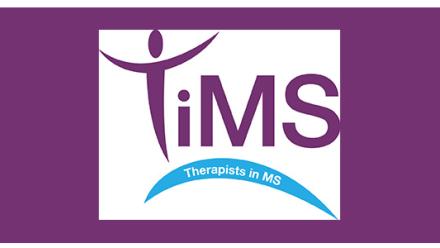The TiMS Working Group continues to meet virtually and are currently working on a respiratory project as well as a project to define the role of therapists in the management of multiple sclerosis (MS).
We look forward to a face-to-face meeting at the MS Trust conference in March. If you are attending Conference, please come along to the meeting to find out more about what TiMS is up to, and how you can be involved. The more new faces the better!
In the meantime, you can follow us on Twitter @TherapistsInMS
Kind regards
Michelle & Jody
Michelle Davies & Jody Barber
Co-chairs of the TiMS Working Group
The 26th MS Trust annual conference will take place from Sunday 26 to Tuesday 28 March 2023, at Jury's Inn Hinckley Island Hotel.
The MS Trust conference is a fantastic event for MS health professionals. It is an opportunity for teams to learn and share expertise with a focus on improving care for everyone affected by MS.
If you have been involved in any MS-specific work, the speed dating poster competition is a great way to showcase this, and we encourage you to submit a poster here.
Here is a taster of the type of conference sessions you can expect.
If you are interested in attending, there are therapy bursaries are still available.
As some of you may be aware, the NICE guidelines for MS were updated June 2022.
Multiple Sclerosis in Adults: Management. NICE guideline (NG220) published: 22 June 2022
Please find below a summary of the main points that have changed:
Section 1.2.10: Explain to carers (including young carers) about their right to a carer's assessment and tell them about other sources of information and support that may be available (see NICE's guideline on supporting adult carers and the Young Carers [Needs Assessment] Regulations 2015).
Sections 1.2.11 – 14: Information and support for people planning to have children or who are pregnant. Ask the person with MS soon after diagnosis and at regular intervals if they have any plans for starting or extending their family now or in the future, either through pregnancy or adoption. Discuss caring for a child and the possible impact of MS symptoms, such as fatigue, and how these could be managed.
Sections 1.2.15 – 18: Information and support for people as MS becomes more advanced, including those approaching the end of their life, covers giving information on social isolation, depression, home adaptations, mobility aids, legal rights, palliative care, advanced care planning.
Section 1.3.1: Offer the person with MS an appropriate single point of contact with knowledge of MS services to coordinate care and help them access services. [2022]
Section 1.3.2: Care for people with MS using a coordinated multidisciplinary approach. Involve professionals who can best meet the needs of the person with MS and who have expertise in managing MS including MS nurse, consultant neurologists, Physio and OTs with expertise in MS, SLTs, psychologists, dieticians, social care, continence specialists, specialist neuro or MS pharmacists, primary healthcare team.
Section 1.5.2: When prescribing medicines for symptom management in people with MS, ensure that local arrangements for prescribing, supply and treatment review follow NICE's guideline on medicines optimisation.
Sections 1.5.12 – 16: Fatigue section has included medical management of fatigue using amantadine and modafinil (except in people who are pregnant or planning pregnancy). It also discusses the use of selective serotonin reuptake inhibitors (SSRIs) in fatigue management.
Section 1.5.18: Do not offer fampridine to treat mobility problems in people with MS. Fampridine is a clinically effective treatment for some people, but it is not cost effective at the current list price.
Sections 1.5.24 – 32: Spasticity section. Try baclofen first, then gabapentin as second line drug treatment. There is more detail about physical support needed and when to refer to a specialist team.
Section 1.5.37: Impact on pain and wellbeing highlighted, guidance on treating neuropathic pain. Musculoskeletal pain explained.
Section 1.5.41: Cognitive and memory problems section. Be aware that the symptoms of MS can include cognitive problems, including memory problems, that the person may not immediately recognise or associate with their MS.
Section 1.5.43: Be aware that anxiety, depression, difficulty sleeping, fatigue and medication can affect cognition. Assess for and offer management appropriate for these issues in people with MS and cognitive or memory problems (for example, see the section on fatigue and NICE's guidelines on generalised anxiety disorder and panic disorder in adults and depression in adults with a chronic physical health problem).
Section 1.6.7: Not new recommendations but states the need to regularly review someone with contracture and spasticity.
Recommendations for vestibular rehab and resistance and aerobic training now included.
Key recommendations for research include: spasticity, cognition, mobility, continued relapses, coordination of care, ataxia, tremor, pain (medical management) and medical and non-medical management of fatigue.
As you are aware, we have been discussing respiratory management of patients with MS for some time. Our long-term goal is to develop a comprehensive respiratory pathway.
This is a huge undertaking. So to start with, we are aiming to develop an educational tool using peak cough flow as a guideline to assess and manage people with MS who have a weak cough.
We have been hearing from several of you with concerns about how changes within the new NHS landscape are leading to a more generalist allied health professional (AHP) workforce, with a loss of AHPs in Specialist Neurological Rehabilitation for people with MS, and in on-going proactive MS condition management.
Due to this, we would like to create something that will provide evidence to support and promote your services, particularly in these specialist areas. This work may also include mapping what therapy is currently on offer for people with MS across the UK. Watch this space!
The TiMS competencies, for all grades of physiotherapists (PTs) and occupational therapists (OTs) working with people with MS, came out in 2018. They have recently been updated and simplified by the TiMS Working Group and the updated version is now available.
The competencies cover all aspects of MS management. They are divided into 20 sections and are very detailed. The aim is that PTs and OTs should be able to use them to identify gaps in their knowledge and skills, as well as record their current and target competency levels. They are in Word so that people can adapt them, if necessary, and use them in a way that suits their job role. We hope you find them useful and please feedback any comments you have about them to the TiMS Working Group.
Download the Physiotherapists and Occupational Therapists Skills and Knowledge Framework.

